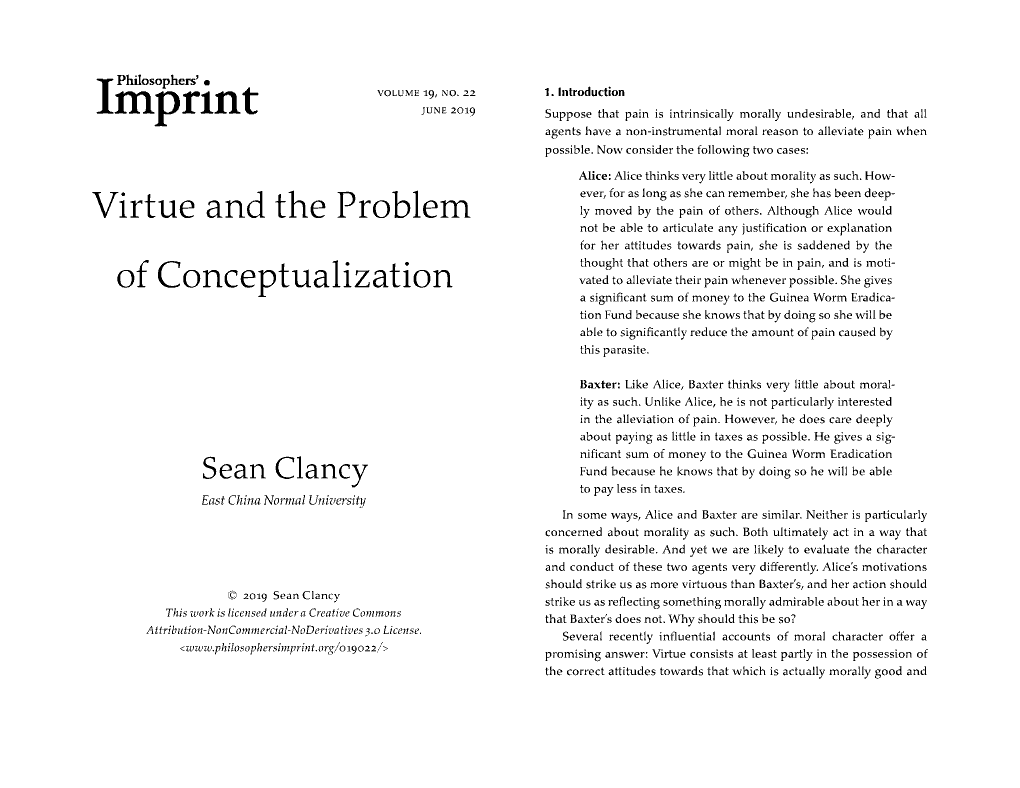Virtue and the Problem of Conceptualization
Skip other details (including permanent urls, DOI, citation information): This work is licensed under a Creative Commons Attribution-NonCommercial-NoDerivatives 4.0 International License. Please contact [email protected] to use this work in a way not covered by the license.
For more information, read Michigan Publishing's access and usage policy.
Abstract
According to an influential family of views, agents are virtuous when and because they possess the correct attitudes towards the actual good and bad. But there are multiple ways of conceptualizing the actual good and bad, and attitudes towards some conceptualizations of the good and bad seem to be irrelevant to moral character. It is deceptively difficult to provide a theoretical rationale for distinguishing between those conceptualizations of the good and bad that seem to be relevant and those that do not: I argue that a previous attempt to provide such a rationale fails, as do a number of seemingly promising alternatives. This problem merits further attention not only because it shows that certain theoretical accounts of character are incomplete, but because it is likely to interfere with our ability to evaluate certain real-world agents, who care about the actual good conceptualized in certain ways but not in others. Since a generalized version of the problem of conceptualization also affects other “intrinsic” accounts of virtue and vice, I argue that we must either solve this problem or abandon such accounts.



